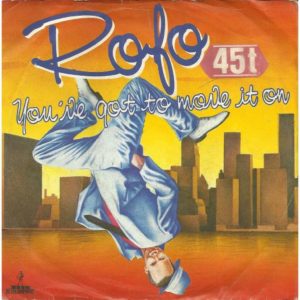Imagine that last year you sponsored a wonderful event with a return on investment that exceeded expectations. The sponsorship agreement has now expired by its terms, and you have learned that the event is seeking alternative sponsors for your former rights, as well as partners for new properties, including digital and internet-of-things partners (See, e.g., SAP digital tools).
You would have loved to have the first seat at the table in negotiating a renewal and for the new opportunities, but you must now negotiate new terms with the event in full competition with other sponsors.
If you had a ROFO, or Right of First Offer, you could have improved your lot. The ROFO gives the sponsor the opportunity to “stay in the game” when the agreement terminates or when new sponsorship opportunities are made available.
The ROFO is important because the sponsorship agreement, particularly in the eyes of the sponsor, has two significant limitations:
- It will expire after a defined term, such as conclusion of the event or a period of years; and
- It will not cover all potential sponsorship opportunities, such as new properties or rights that are not fully established or contemplated when the deal is first papered.
The ROFO requires the grantor (in this case, the event) to offer to the sponsor the right to purchase a thing before making or soliciting an offer for that thing from any third party. The thing, in the context of a sponsorship agreement, is customarily a renewal of the sponsorship or new/additional rights that were not previously available.
If the sponsor rejects the grantor’s offer, the grantor is free to negotiate a deal for the thing with third parties. But the ROFO prohibits the grantor from making a third-party deal unless the terms are at least as favorable (or materially more favorable) to the grantor as the terms offered to the sponsor.
For example, if ACME Rental Car enters into an agreement to become the exclusive official rental car sponsor of the 2018 Indianapolis 500 for $5 million cash plus additional benefits, ACME could include a provision in the agreement giving ACME a ROFO for the same rights for the 2019 event (and possibly for subsequently available sponsorship properties, categories, or territories).
The ROFO would provide that the Indy 500 could not offer any third party the right to be the official rental car sponsor (or similar category sponsor) of the 2019 event without first making an offer to ACME. If ACME refused the offer, only then could the Indy 500 seek third party rental car sponsors. However, the Indy 500 could not enter into an agreement with a third-party sponsor unless the deal was at least as favorable (or materially more favorable) to the Indy 500 as the offer made to ACME.
For instance, assume that under the ROFO the Indy 500 offers ACME a 2019 sponsorship package for $6 million cash plus additional benefits. ACME rejects the offer. The Indy 500 could enter into the same deal ACME rejected with Jalopy Car Rental Car, but it could not do a deal with Jalopy for $5.5 million unless it first made that offer to ACME and ACME rejected it.
Now, if you are not the sponsor but instead you are the event or other sponsorship recipient, the ROFO is not necessarily favorable to you because it limits the market of potential sponsors, which can reduce your fees. What to do? The event or other recipient can either (i) decline to include the ROFO in the sponsorship agreement or (ii) change it to a Right of Negotiation (RON) or a Right of First Negotiation (ROFN), both of which I discuss here.